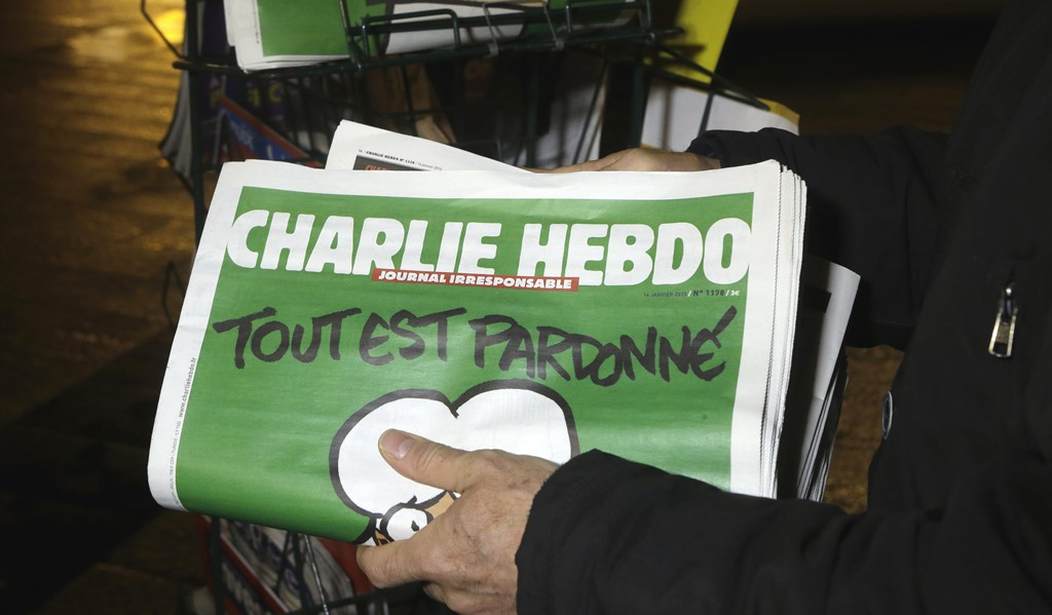Editor's note: This column was authored by Dan King.
Saturday, January 7, marked two years since armed Islamic terrorists stormed the offices of French satirical magazine Charlie Hebdo and killed 11 people following the magazine’s feature of a drawing of the prophet Mohammed. Yet while the French people briefly rallied around the magazine with the slogan “Je Suis Charlie,” free speech remains under assault due to French hate speech laws.
In the aftermath of the attack, the PEN American Center, one of the world’s foremost free speech advocates, decided to award the French magazine its annual Freedom of Expression Courage Award. However, dozens of writers who were supposed to attend the gala withdrew, stating that they felt Charlie Hebdo promoted “cultural intolerance.”
That line of thinking is ever-growing and dangerous, and it is strengthened by systemic failings in France that allow such attacks to take place. France’s laws regarding hate speech, namely Section 24 of the Press Law of 1881 on preventing speech that “incites discrimination hatred, or violence on the basis of one’s origin or membership (or non-membership) in an ethnic, national, racial, or religious group,” are incredibly restrictive and essentially embolden and justify the attackers.
In the wake of this terrorist attack, the French government, led by President Francois Hollande, spent £72 million on a three-year plan to slow hate speech and give more strength to the hate speech laws.
That means the terrorists won.
The motive of their attack was to silence the staff at Charlie Hebdo and others who would dare to depict the prophet Mohammed. Their attack got the government to strengthen hate crime laws and had a chilling effect on magazines, including Charlie Hebdo, many of whom have become increasingly reluctant to publish drawings of Mohammed.
Recommended
On the two-year anniversary of the attack, journalist Zineb El Rhazoui quit working for the magazine. Last year, she told the New York Times Magazine: “It’s totally crazy. I have done nothing against the law and have nothing to hide, yet I live with security while those who threaten us are free.”
That perfectly highlights the systemic failings of hate speech codes: they blame the victim for the crime. Saying a cartoon, for example, incited violence against those who drew it is the same appalling reasoning as saying a rape victim was asking to be raped because of the way he or she was dressed.
The French government made an appeal to those terrorists by emboldening this line of thinking and laying blame on Charlie Hebdo.
It should be a simple concept, but apparently it isn’t: we need to have a firm distinction between words and actions. Only actions can impede on someone’s rights.
Candlelight vigils and moments of silence are all fine and dandy, but if the French government really wants to honor the victims of the attack, it’s time to do the right thing. Instead of wasting tax dollars, and condemning the idea that controversial speech is a natural right, the French government needs to repeal the laws that make these terrorists feel justified in the first place.
Dan King is an advocate for Young Voices and a journalist residing in New York’s Adirondacks. He writes about free speech and civil liberties and can be found on Twitter @Kinger_Editor.

























Join the conversation as a VIP Member